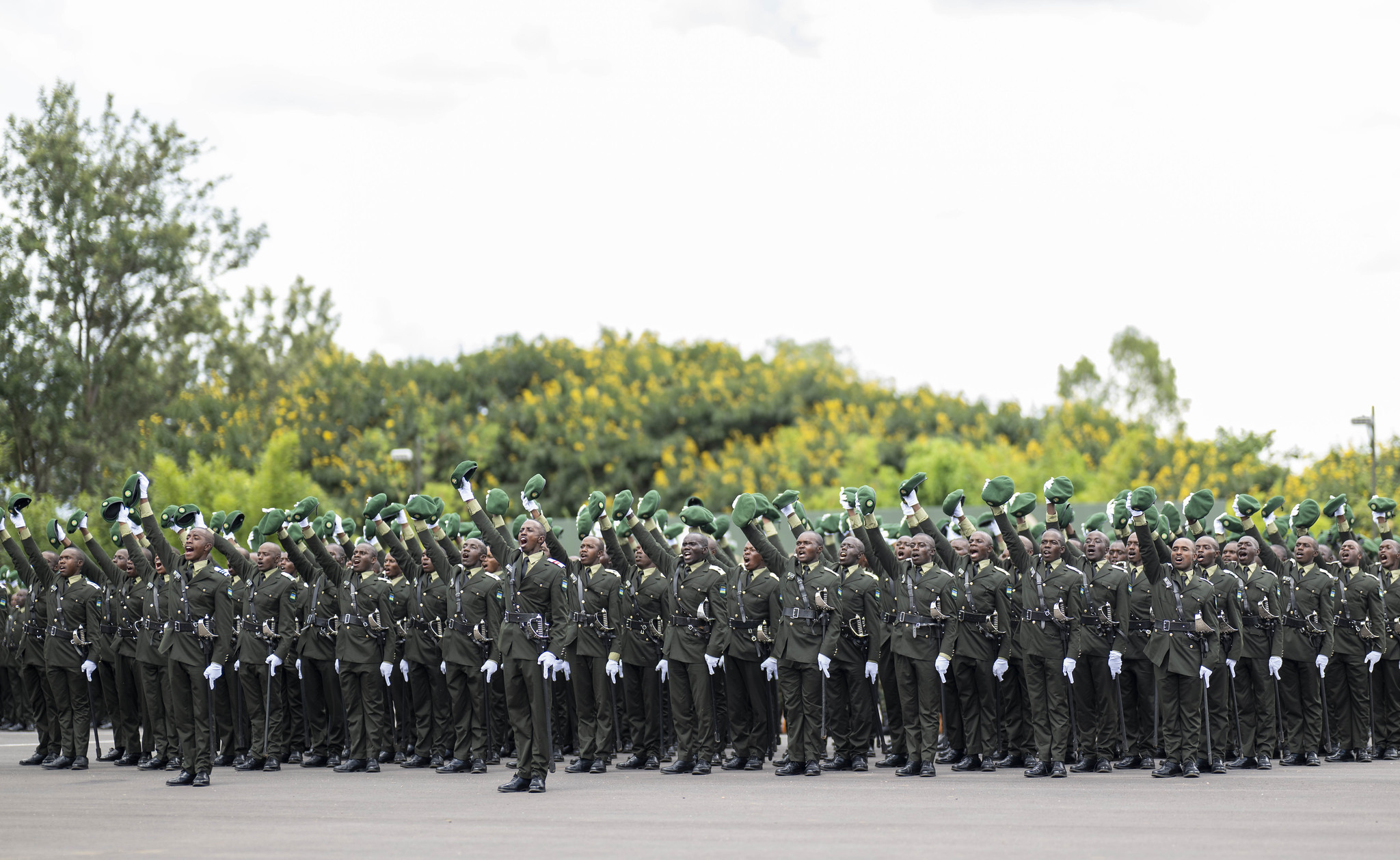Amidst the virtual glow of magnificent imageries, a stirring spectacle unfolded: the recent cadet pass-out ceremony. The scene emanated an aura of pride and anticipation as newly minted cadets, clad in immaculate uniforms, epitomized discipline, devotion, and resolve.
Under the sun’s golden embrace in equally a significant geographical location with a powerful historical reference, the parade ground transformed into a stage for history once again, promising a momentous occasion that would echo far beyond the walls of the esteemed military academy, RMA in Gako.
Yet, amidst the customary grandeur, a remarkable shift captured everyone’s attention alike. Instead of the accustomed cadence of English or Kiswahili, the air reverberated with the melodious cadence of Kinyarwanda. “Rimwe, Kabiri! …One-Two, or Moja-Mbili… “Oroha” or At Ease!” rang out, a departure that took many by surprise.
The significance of this linguistic transition was palpable, even to the seasoned military attaches from former colonial powers in attendance. For generations, the military had marched to orders barked in languages inherited from the colonial past, a legacy that persisted long after independence.
However, on this day, the Rwanda Defence Forces boldly embraced Kinyarwanda as their language of command, breaking free from the shackles of colonialism and reclaiming our rich cultural heritage.
At the helm of this transformative moment stood President Paul Kagame, the Commander-in-Chief of the RDF. The ceremony served as a poignant reminder of Rwanda’s journey from the depths of turmoil to the heights of triumph.
Emerging from the crucible of conflict, the RDF, formerly the Rwanda Patriotic Army (RPA), had played a pivotal role in halting the genocide against the Tutsi in 1994 and disposing of a genocidal government under a divisive ruler.
Kagame’s visionary leadership guided this metamorphosis, rallying men and women to sacrifice for the rebirth of a new Rwanda. As the echoes of the liberation struggle reverberated through Kagame’s words, “Jeshi letu ndilo litakuwa msingi wa mabadiriko ambayo atakuwepo kwa inchi yetu,” translated as “Our Army will be the bedrock of national transformation and development of our country,” the essence of Rwanda’s resilience and determination resounded.
With each drill executed with precision, the symbolic power of language came to the fore. Kinyarwanda transcended mere communication; it embodied Rwanda’s values, history, and aspirations.
By embracing their mother tongue, the RDF paid homage to their ancestors, safeguarded their cultural legacy, and charted a course towards a distinctly Rwandan future.
These cadets, hailing from diverse backgrounds, stood united as a testament to Rwanda’s commitment to reconciliation and unity. Their collective presence marked a pivotal moment in Rwanda’s journey towards a future unmarred by division, where unity reigns supreme, and the wounds of the past are tended to.
As the ceremony drew to a close and the cadets marched off the parade ground, heads held high, a wave of optimism washed over those who attended.
In a world often fractured by discord, Rwanda’s unity and progress shone as a beacon of hope. Guided by the principles of courage, integrity, and unity, the Rwanda Defence Forces has forged ahead, lighting the path towards a brighter tomorrow.